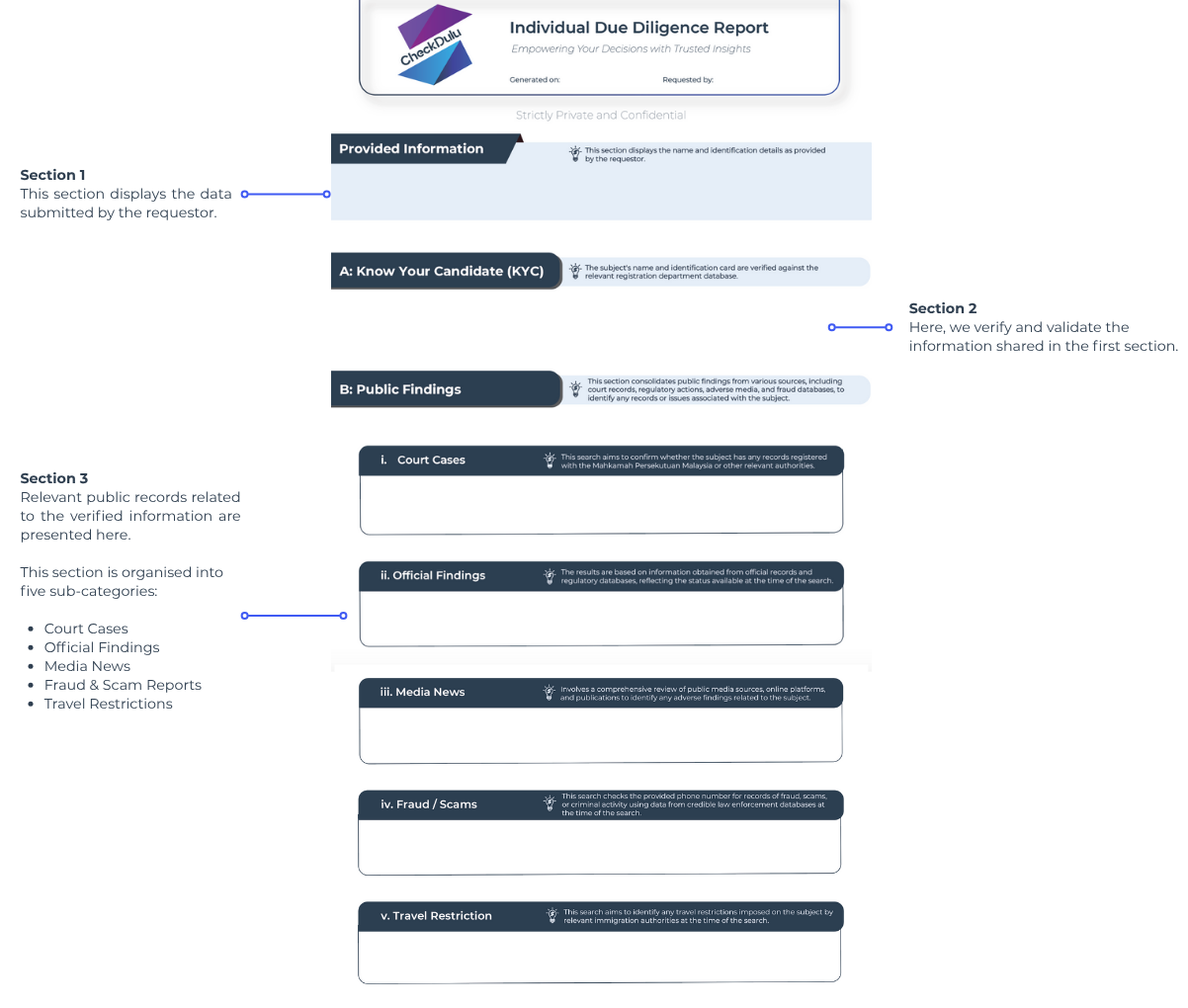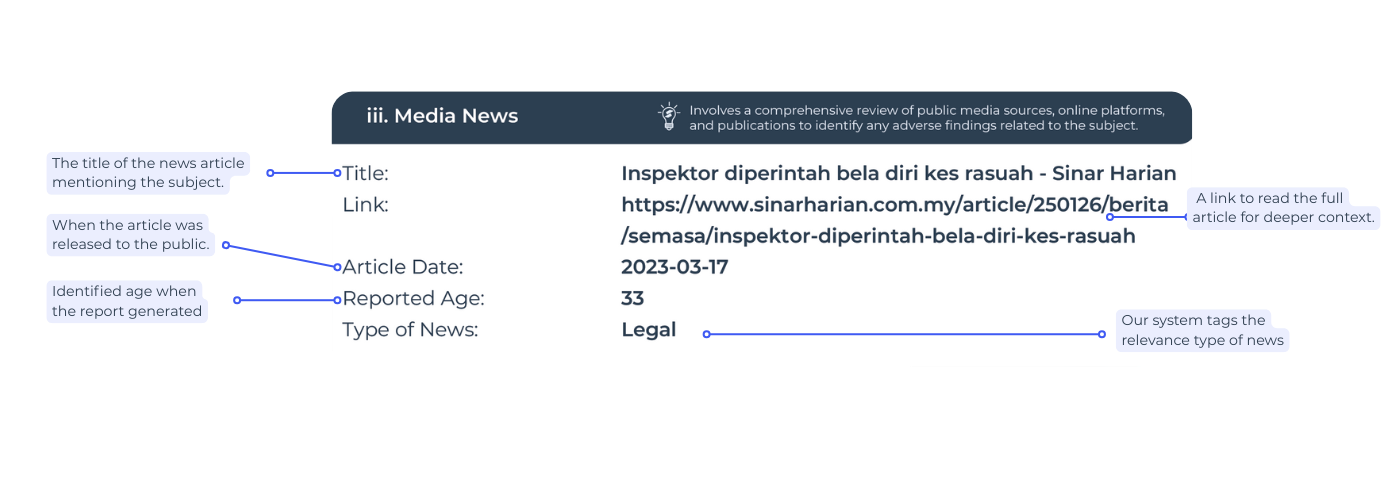I-GO Smart is a digital solution provider focused on empowering smarter decision-making through intelligent, data-driven tools. We specialize in simplifying complex processes like due diligence and risk screening, helping individuals and businesses make faster, safer, and more informed choices. With innovation, integrity, and user experience at our core, I-GO Smart builds solutions that protect, enable, and elevate modern decision-makers.
Contact Us1-9B, Jalan Pp 5C/1, Taman Putra Perdana, 47100, Puchong, Selangor.
1-9B, Jalan Pp 5C/1, Taman Putra Perdana, 47100, Puchong, Selangor.



How to Use This Information:
Note: A court record does not always indicate guilt or wrongdoing. Consider the judgement status and context of the case before making final conclusions.

Data Sources:
How to Use This Information:
This section identifies any negative news or media coverage involving the subject by scanning Malaysia’s most trusted and authoritative news portals. It helps you uncover reputational issues that may not appear in official records or court databases.

Powered by Our Optimized Search Engine
CheckDulu’s system intelligently filters and scans top Malaysian media sources for relevant and high-risk mentions of the subject. This ensures you get a noise-free, reliable snapshot of any adverse media tied to the individual.
How to Use This Information:
This section identifies whether the subject’s phone number has been associated with fraudulent, scam, or suspicious activities. It is an essential layer of verification, especially when evaluating trustworthiness for business, financial, or personal dealings.

How to Use This Information:

How to Use This Information:

How to Use This Information:
